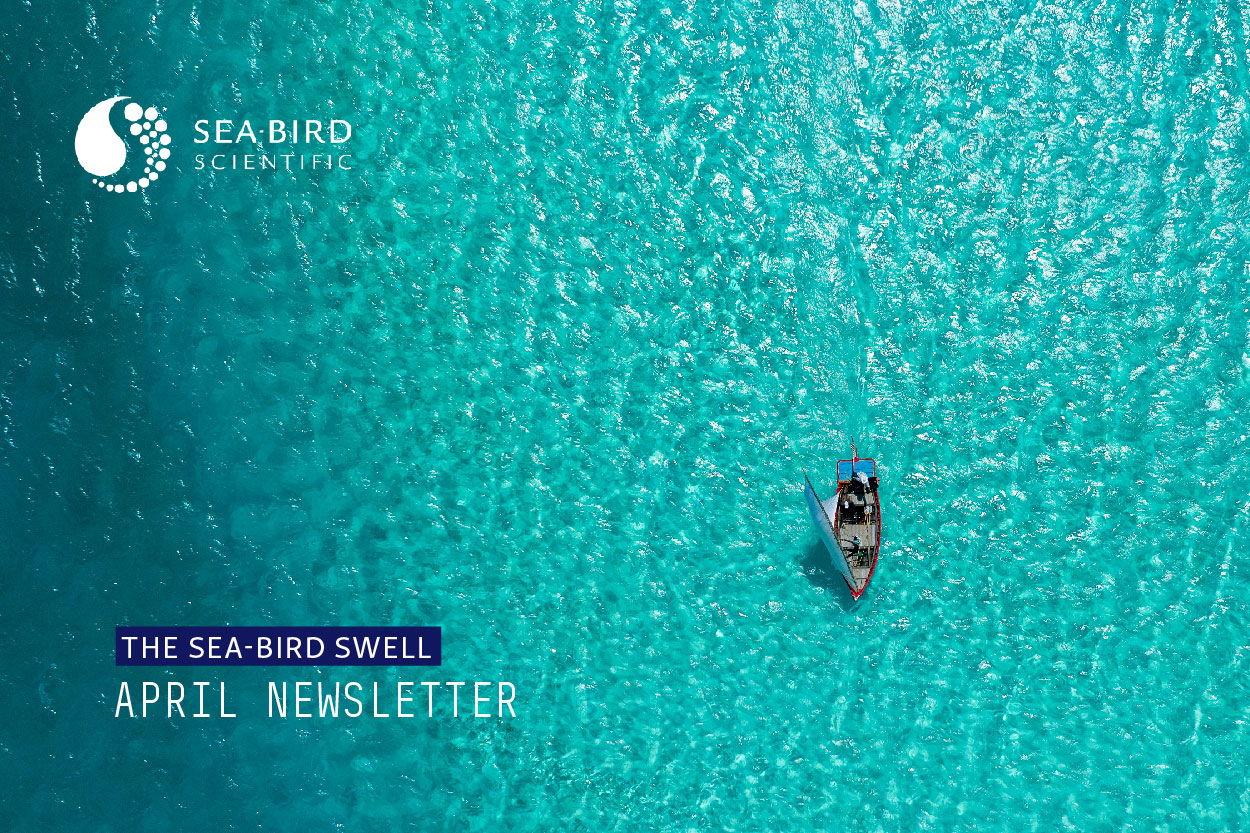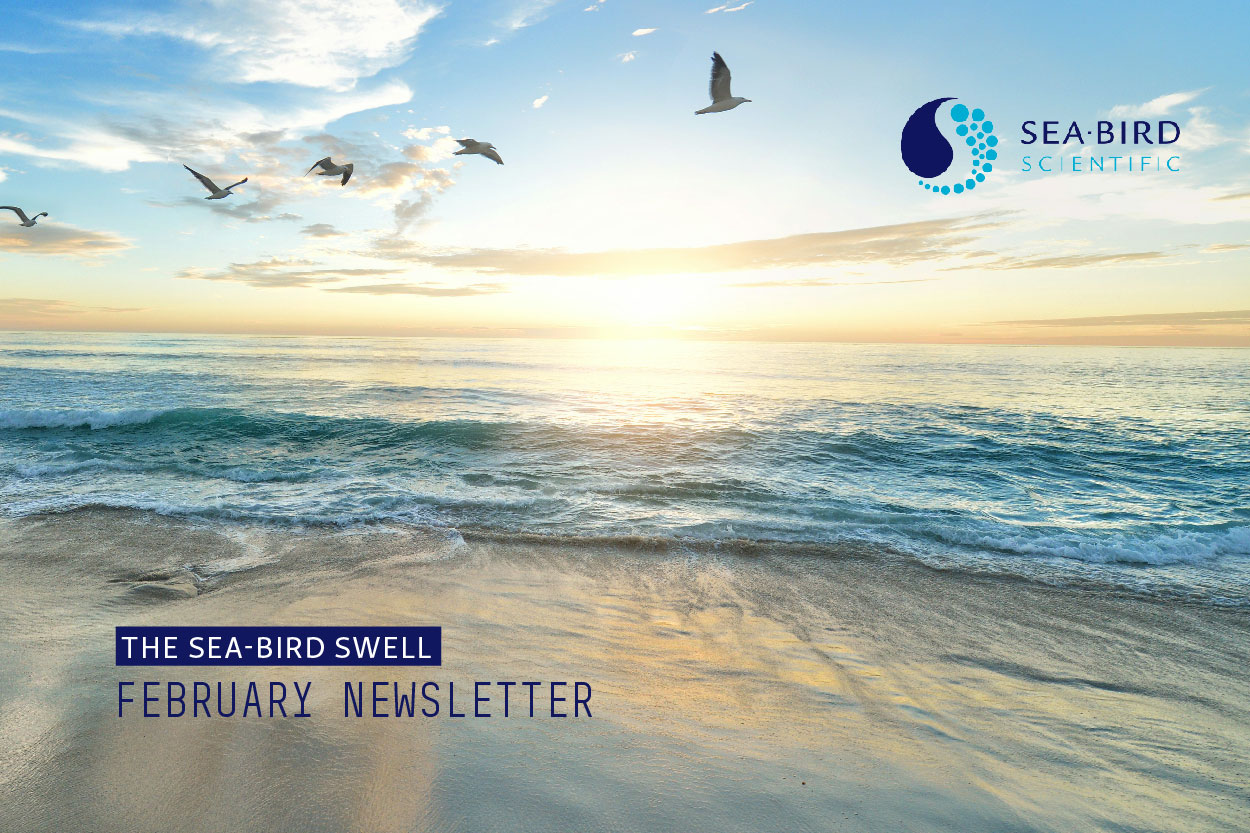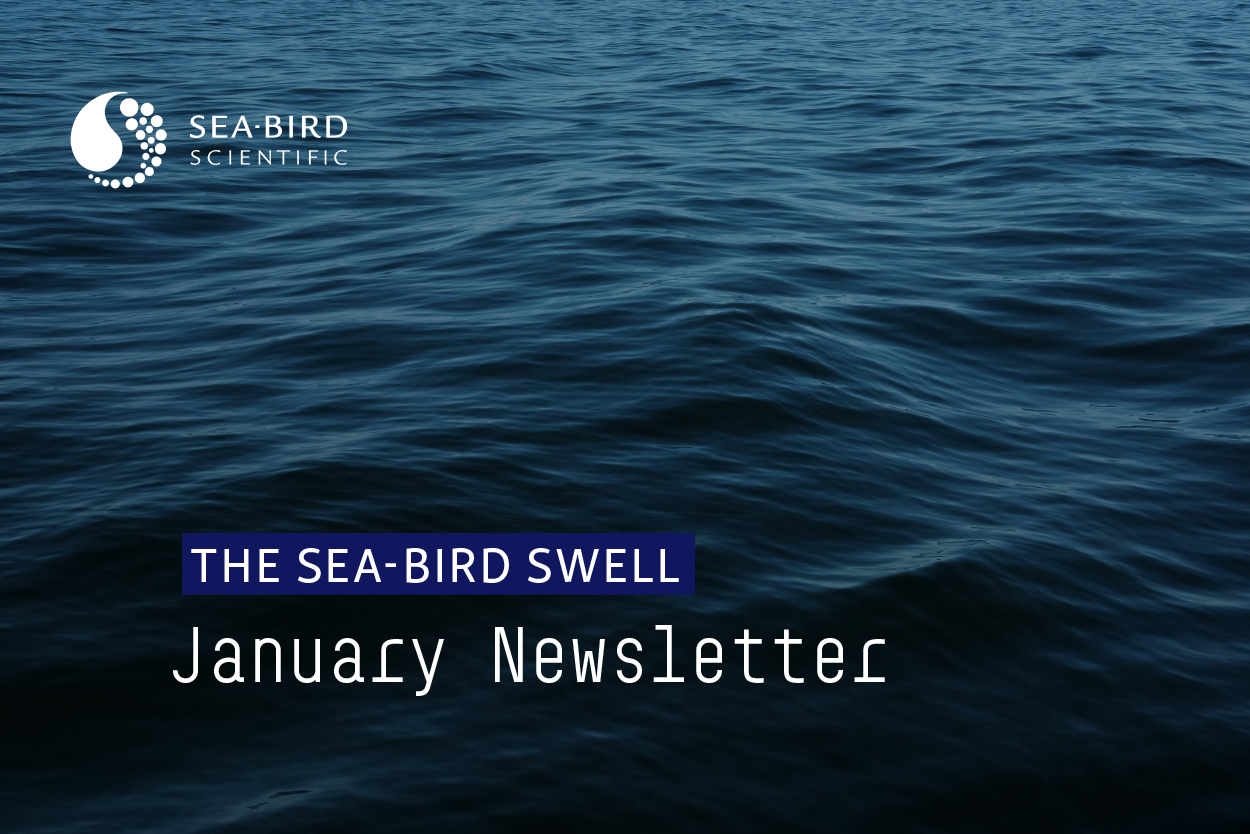Q&A: Negative Fluorescence Data
December 2019 Newsletter
Fluorescence is the light emitted by a particle after excitation from another light source. Sea-Bird Scientific fluorometers are widely used to measure fluorescence from chlorophyll as a method of measuring primary productivity.
The figure above shows a 10 meter profile of an ECO-Fl fluorometer. The shape of the profile and most of the data are reasonable, but fluorescence in the upper 5 meters (marked in red) appears to be negative. Since the signal should never be below zero (there cannot be negative amounts of plant life), something is obviously wrong.
Can you identify the problem?

Answer: Uncalibrated “Dark Offset”
Sea-Bird Scientific’s ECO fluorometers have a calibration value known as the “Dark Offset”. This value represents the zero-output of the sensor: when the fluorometer’s detector is not picking up any fluorescence (e.g. when it is completely dark), the sensor will output a small nonzero signal (in counts if outputting serial data, or volts if outputting analog data). This signal may vary slightly when moving the ECO to a different platform, especially when outputting analog data from the ECO.
Sea-Bird Scientific calibrates the dark offset, but it is best to recalibrate this offset with the ECO’s exact deployment setup (same cable, same CTD or logger, and same power supply). The process is quick and easy:
- Cover the LED and detector with black electrical tape. Remove any bubbles and ensure the tape is smooth.
- Turn the system on and gather ECO data (volts if capturing the analog output, counts if capturing digital output).
- Record the ECO’s output for 60 seconds.
- Identify the minimum value. This value is the new “Dark Offset”.
- Replace the existing “Dark Offset” value in the ECO’s calibration data. If using the ECO with a Sea-Bird Scientific CTD, enter this into the “Dark Offset” field in the .xmlcon file.
Related Posts
Featured Posts
Oceanology International 2024
We hope to see you at #Oi24 We are excited to return to Oceanology International 2024 again in London, UK from March 12-14. Overview Oceanology International brings together 500+ exhibitors in the only event that links the three key players in the industry:...
Ocean Sciences Meeting 2024
We hope to see you at #OSM24 We are excited to return to Ocean Sciences Meeting 2024 in New Orleans, Louisiana from February 18-23 at booth number #527. Overview The Ocean Sciences Meeting 2024 is co-sponsored by the American Geophysical Union, the Association for the...
Pride 2023
Celebrating and honoring our LGBTQIA+ communities At Sea-Bird Scientific, we are proud to stand with members of the LGBTQIA+ community during Pride Month 2023. As with last year, we changed our logo on social media to feature a rainbow throughout the month of June in...
Science and Technology
Platform



